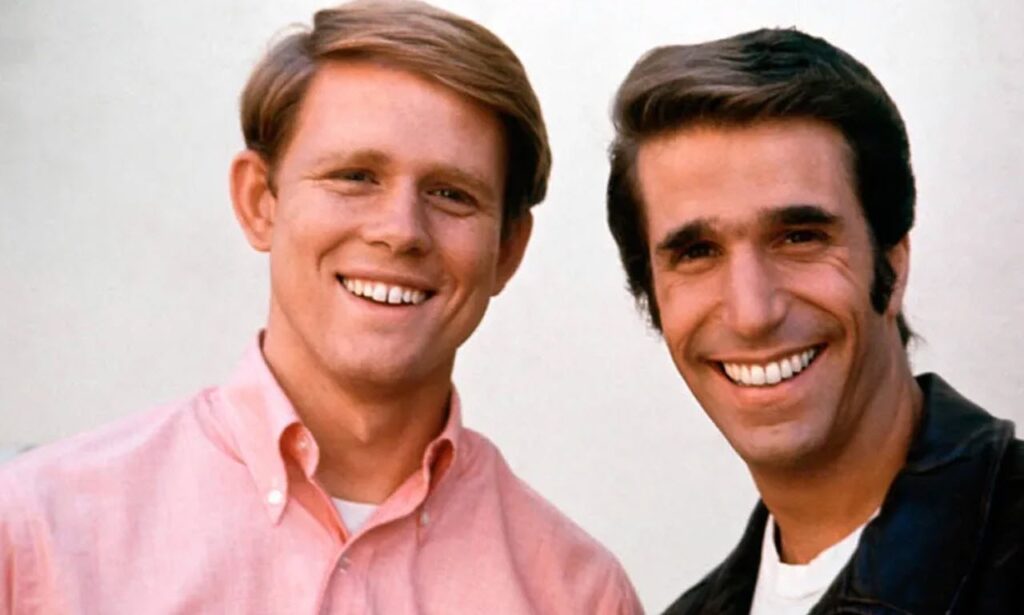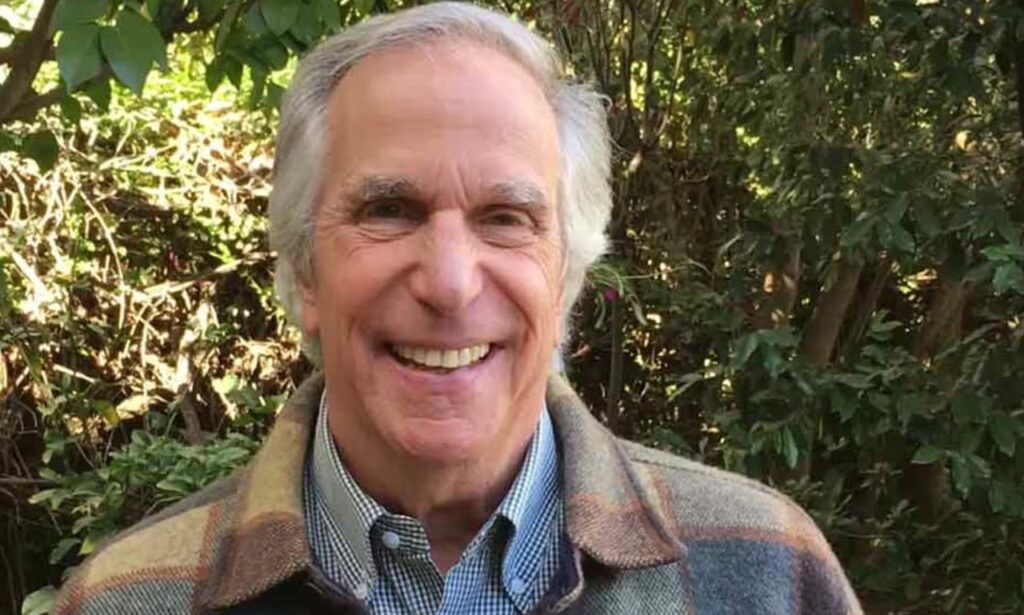Henry Winkler, best known for his iconic role as “Fonzie” on the classic TV show *Happy Days*, didn’t have the glamorous upbringing one might expect of a future Hollywood superstar. Born to a family of Jewish immigrants who fled Nazi Germany, Winkler grew up in New York City under challenging circumstances. His early years were filled with struggles, not only because of the typical challenges of a first-generation American child but also due to an undiagnosed reading disability that would later be identified as dyslexia. His parents, strict and demanding, did not understand the nature of his learning challenges, and as a result, they often labeled him as “dumb,” even calling him “Dummo Hund,” or “dumb hound,” a hurtful German phrase. Such words were a frequent reminder of his struggles, and their impact was only compounded by teachers and peers who treated him similarly.
Growing up with these labels affected Winkler’s self-esteem and shaped his view of himself. Despite the negative feedback from those around him, he clung to his dreams of becoming an actor. Determined not to let his reading challenges hold him back, he applied to 28 universities after high school, though he was rejected from most of them. His persistence paid off, however, as he eventually gained acceptance to two schools and ultimately received a letter from the prestigious Yale School of Drama. This acceptance marked a turning point in Winkler’s life, opening the door to the career he had long dreamed of, even though he still faced challenges. In one of his first major acting experiences, Winkler performed an improvised Shakespearean monologue, impressing audiences with his raw talent and proving to himself that his dreams were worth pursuing.

Despite his success, Winkler continued to face difficulties caused by his dyslexia. His struggles with reading and coordination persisted, but he adapted by memorizing his lines. His charm and dedication helped him navigate the challenges, especially when portraying Fonzie, a character whose popularity skyrocketed. Winkler brought an “essence” to Fonzie, using humor and creativity to cover his reading difficulties. However, he made a conscious choice to turn down the starring role in *Grease*, recognizing that the role could pigeonhole him and limit his opportunities as an actor. This choice showcased Winkler’s understanding of his own career path and his determination to create a legacy beyond a single character type.
Winkler’s life took another pivotal turn when his stepson Jed was diagnosed with dyslexia at the age of 31. This diagnosis was a moment of revelation for Winkler, as he recognized that he and his stepson shared the same learning disability. It brought clarity to his lifelong struggles and helped him reframe his own experiences with dyslexia. Seeing his stepson’s journey encouraged Winkler to fully acknowledge the influence of dyslexia on his own life and career. From then on, Winkler not only accepted his dyslexia but began to openly discuss it, helping to raise awareness about learning disabilities. He emphasized that dyslexia didn’t define him but rather shaped the unique way he approached his work and life.
After the success of *Happy Days*, Winkler took on new acting roles and expanded his career behind the scenes. He played a significant role in developing the popular television series *MacGyver*, a project that highlighted his creative versatility and resilience. His transition from the beloved Fonzie to a multifaceted entertainer demonstrated his adaptability and willingness to embrace new challenges. In each new endeavor, Winkler’s talent and determination continued to shine, revealing that his journey was far from over.

Henry Winkler’s transformation from a young boy labeled as “dumb” to a beloved Hollywood figure is a testament to the power of perseverance and self-belief. His story serves as an inspiration to anyone facing personal or societal obstacles. Through sheer resilience and commitment to his craft, Winkler proved that even the toughest challenges could be overcome. His life and career reflect how one’s perceived limitations can ultimately become sources of strength, leading to remarkable achievements.
Today, Winkler is not only an accomplished actor and producer but also a vocal advocate for those with learning disabilities. His story highlights the importance of recognizing and supporting people with different learning styles, proving that talents can shine brightly despite early struggles. His journey reminds readers that success is not just about talent but also about persistence, self-discovery, and the courage to forge one’s path.





